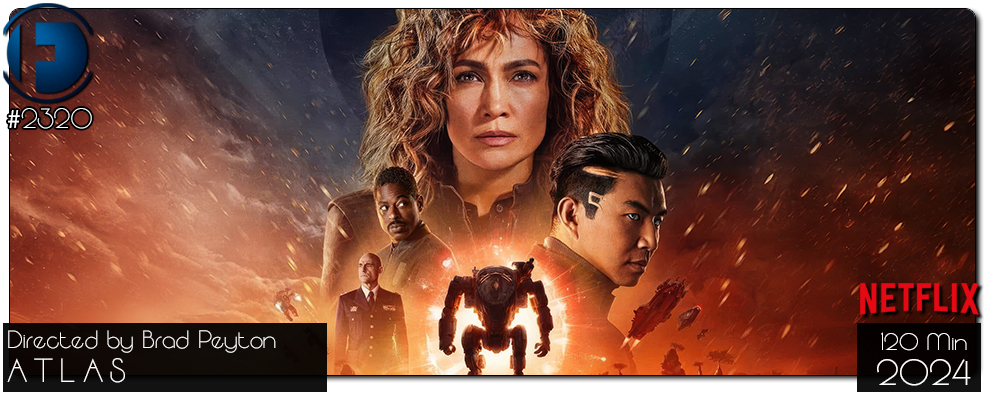Movie Review – Atlas (2024)
Principal Cast : Jennifer Lopez, Simu Liu, Sterling K Brown, Gregory James Cohan, Abraham Popeela, Lana Parrilla, Mark Strong.
Synopsis: In a bleak-sounding future, an A.I. soldier has determined that the only way to end war is to end humanity.
********
Netflix’ focus on being entirely mediocre continues with stupefyingly dull AI-centric sci-fi antics in this Jennifer Lopez-led actioner, Atlas, directed by Rampage and San Andreas helmer Brad Peyton. If you typed “write a script involving AI robots and an enormously derivative plot centered around the end of the world, Atlas is exactly the type of thing ChatGPT would spit out in a half second – Atlas owes a lot to the spectrum of genre films of decades past, not the least of which is Blade Runner, Avatar and I Robot. In “borrowing” ideas from other films and smashing them together so haphazardly, Atlas’ cultural footprint will exponentially reduce the fewer people become aware of its cinematic ancestry, if it even survives at all. This is a painfully dull movie, with Lopez trying as hard as she can to shoulder a fairly inane Artificial Intelligence plot and a vagary of nonsensical thematic underpinnings, but Peyton’s inability to really make us connect with the material is a key problem to the film’s malaise.
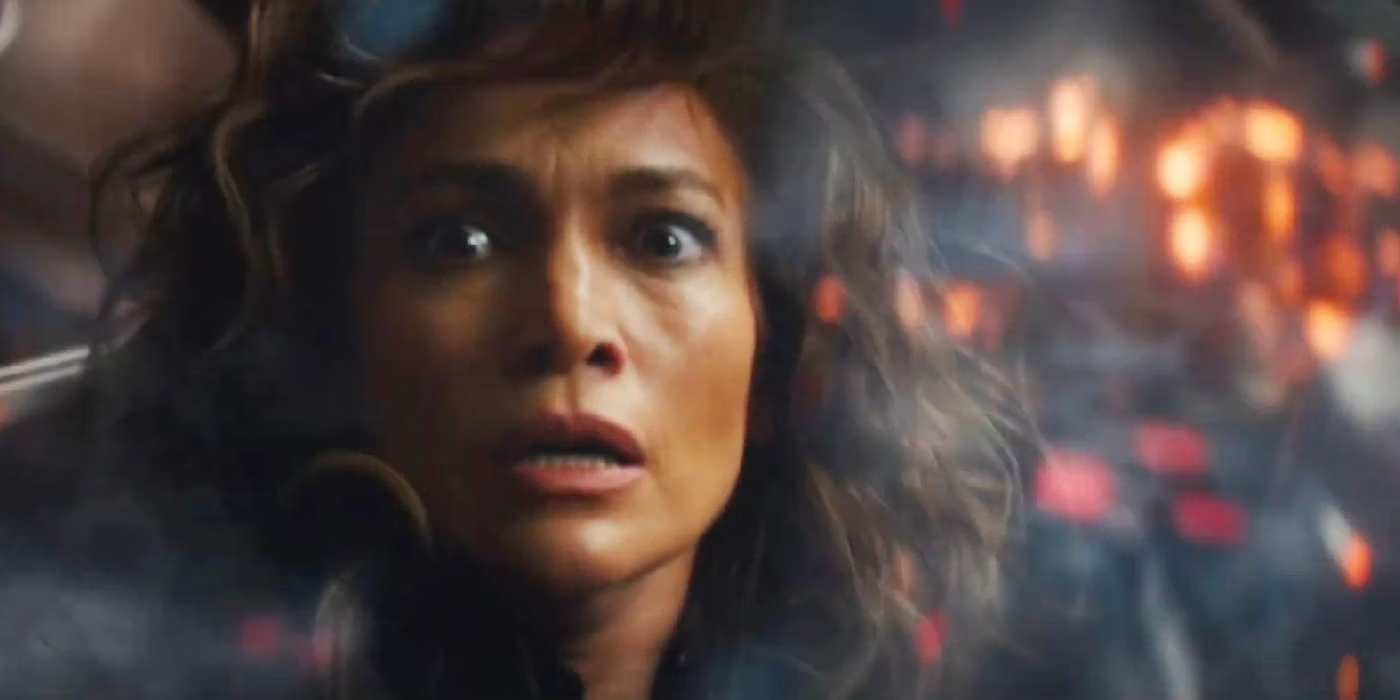
In the future, AI-sentient robots have gained independence and attempt to take over the Earth, with a UN-like organisation of humans dedicated to hunting down these “terrorists” and mitigating their threat. The leader of these robotic terrorists, Harlan (Simu Liu) has escaped to a different planet to build an army, with designs on returning to Earth to conquer it. Meanwhile, PTSD-afflicted scientific analyst Atlas Shepherd (Lopez), daughter of famous inventor Val Shepherd (Lana Parrilla) and creator of the synthetic robots and their AI systems, struggles with guilt over her mother’s death. Launched into a recon mission to locate Harlan, Atlas and a cohort of human-AI solders/mechs arrive in the Andromeda Galaxy and are promptly ambushed, leaving the headstrong analyst to survive in a mech suit with her only companion, Smith (voice of Gregory James Cohan) to keep her alive against Harlan’s forces.
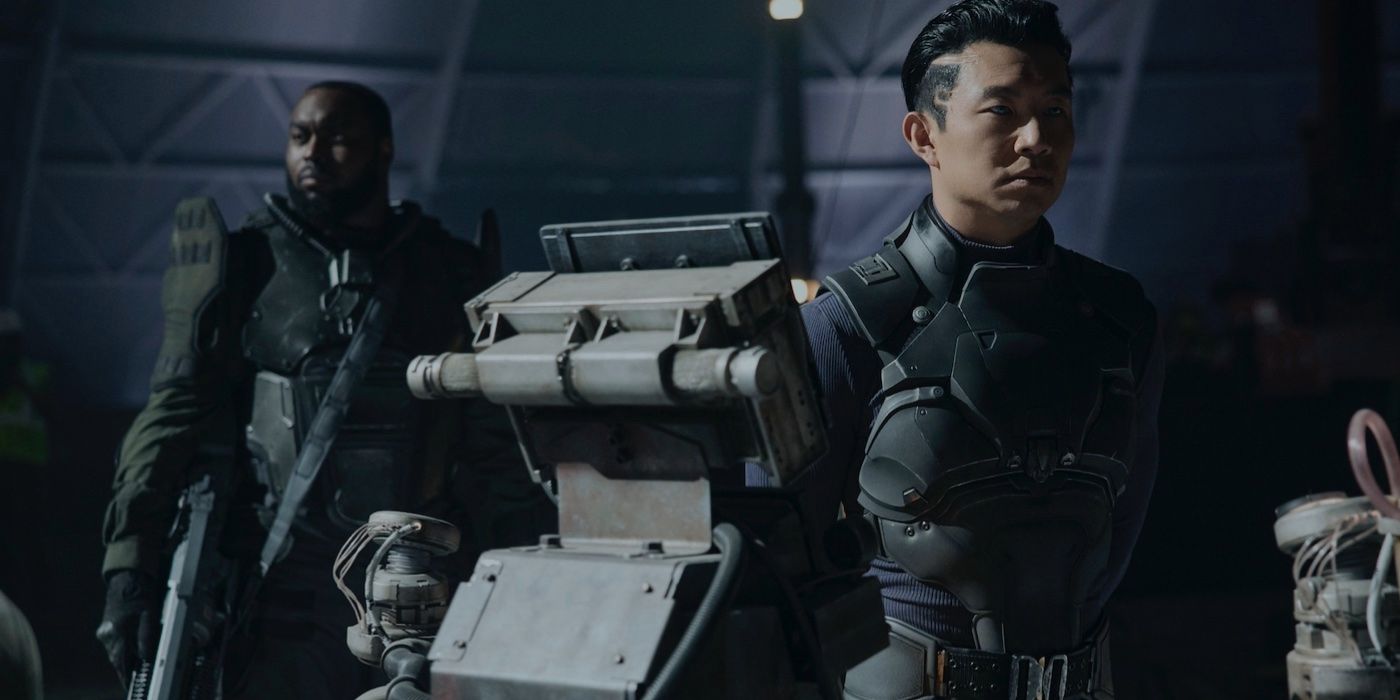
Netflix have really had a shocking run of luck picking quality scripts to stump up money to produce for their service. I mean, their track record has been spotty at best for the longest time, but it’s starting to get to the point now where they can’t even stumble into a win with their original programming. Various internet reporting suggests they dropped a lazy $100m into Atlas‘ production, not exactly chump change for sure, but aside from a barrage of flashy visuals (and they are flashy, rivalling even Zack Snyder’s recent 2024 effort in Rebel Moon for quality VFX) there’s not much beneath the surface. Unfortunately, the film’s screenplay, variably credited to Leo Sardarian and Aron Eli Coleite, lacks inventiveness, seemingly content to nick a bunch of other films’ ideas and adjust them to suit this story’s aesthetic. The AI-centric themes and “robots go bad” plot is fairly generic, liberally stolen from I Robot, Blade Runner, and even Terminator, while the film’s design aesthetic leans into James Cameron’s Avatar mech suits and softcore Star Wars “used tech”, not exactly ingenious and giving you a real feeling of deja vu while you’re watching. Hel, the visual effect used to represent Smith’s avatar on-screen looks like the Siri effect on an Iphone! Peyton also apes the Wachowski’s directorial style from The Matrix, only without the crisp understanding of how that style works to back it up, and the plentiful VFX, explosions and expansive world-building certainly make the world of Atlas Shepherd feel lived in, but you really can’t escape the feeling that this jigsaw piece collection of parts should have perhaps stayed in the cupboard.
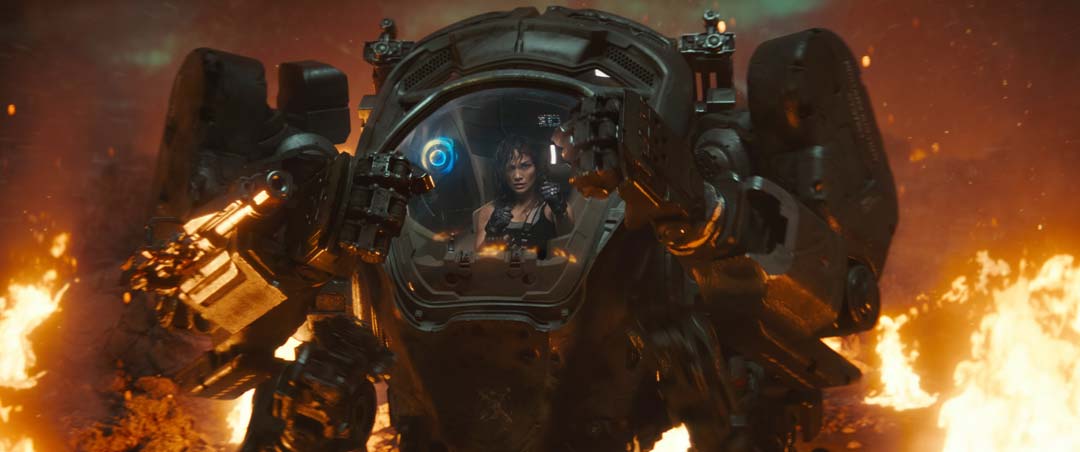
Even Jennifer Lopes struggles to elevate this material. Okay, she’s a better singer than she’s ever been an actor, but neither Shotgun Wedding, nor The Mother (her previous Netflix premiere) have really drawn upon her strengths. Her character’s tragic backstory and weighty conflict with AI as a concept is drawn out throughout the movie and by and large never quite connects with the viewer, a join-the-dots seen-it-coming twist in Frankenstein building the monster trope part of the frustratingly inert subplot backgrounding the slick production values. She spends a lot of the film encased inside her armoured mech, stubbornly refusing to “connect” with the intuitive AI programme within it – voiced by Gregory James Cohan doing his best male Siri impression – and delivering very much a sweaty, concerned “Tom Hanks in Cast Away” performance that… well, it never quite gets there. Supporting roles to Sterling K Brown and Mark Strong as Atlas’ military backup offer miniscule depth to the plot, while Simu Liu’s Harlan Shepherd lacks the gravitas required to provide a decent foil to Atlas’ character arc. In truth, Liu sports a look that’s a cross between Kim Jong Un and Rick Yune’s character from Die Another Day, and spends a lot of the film offscreen given the urgency his character is given in the overall mission. The actor has limited opportunity to really deliver a compelling character at all, but he plays up the sinister one-note role as hard and as malevolent as he can despite the cacophony of noise surrounding him. It truly boggled the mind that for the film’s climax, the film had an bizarre laser sword thing emerge from Harlan’s forearm without even so much as why an apparently domesticated robot might have such a weapon in the first place. Yep, a lot of stupid decisions behind the camera make for stupid things happening in front of it.
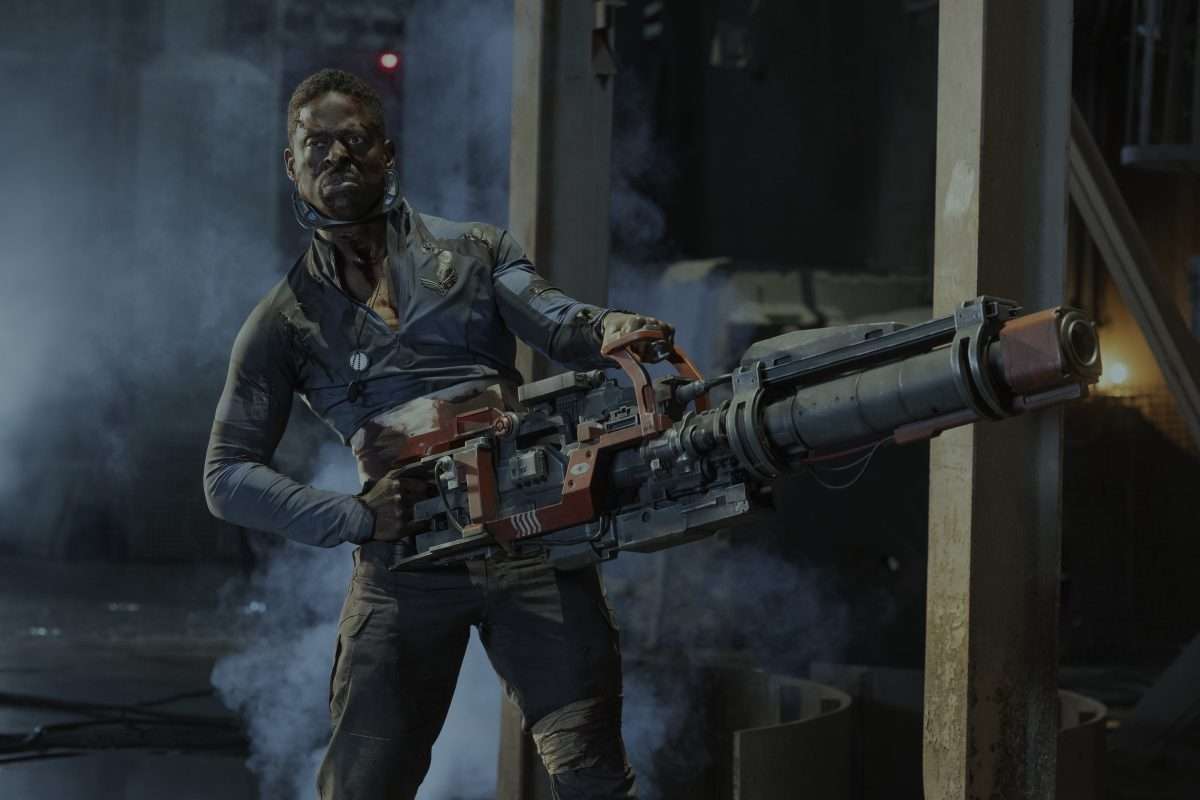
Unfortunately, Netflix’ Atlas continues to mire the streamer in mediocrity. It’s not like they didn’t try, but whoever is greenlighting money for these projects needs to rein it in. Atlas is mindless pap, an expensive looking bomb trying hard to say something interesting about the rise of AI. If only it hadn’t been written by AI, or starred an AI central character, or actually tried to deliver something new to the viewer instead of cobbling cast-off parts from other genre films together for its generic plot; there’s lots Atlas could have done better, but perhaps it might have been better never being made at all.

